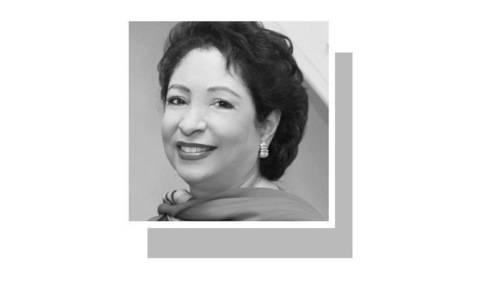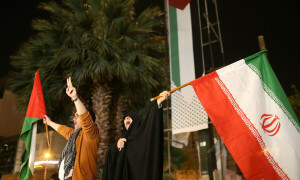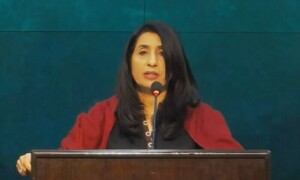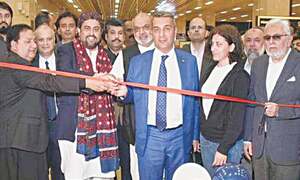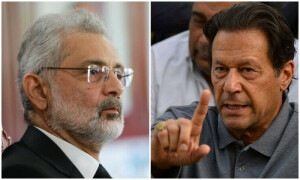WISE persons have no problem choosing noble objectives and adopting appropriate means to realise them but wise people are a threatened species all over the world and more so in underdeveloped countries. In Pakistan, the choice of ends and means poses formidable challenges because of the country’s transformation into a national security state.
Most security-driven states see, often wrongly, a conflict between state security and individual freedoms. They therefore deem it necessary to curtail citizens’ freedoms, ostensibly for boosting national security. For example, at one stage in Pakistan’s life, a person could be detained without trial for a maximum of 14 days. Laws have been made over the last few decades that authorise the state to detain citizens without trial almost indefinitely. In the eyes of independent jurists, this amounts to adoption of unjustifiable means to achieve ends that too cannot always be justified.
In the name of security, the media is often advised to publish or not to publish something in the national interest and nobody outside the establishment is supposed to have the power to decide what ‘national interest’ means. A citizen’s freedom of movement can be curtailed. He is not allowed to take out a procession along The Mall in Lahore on the grounds that it will affect the business of shopkeepers although the procession organisers need these traders’ support to the cause they might have taken up.
If a friend who is in politics wishes to visit Karachi, he can be stopped from entering the city and compelled to return home. If the citizen’s name is Mohsin Dawar he cannot be allowed to enter Quetta city; the fact that he may be a member of the National Assembly does not matter.
Security-driven states often wrongly see a conflict between state security and individual freedoms.
Further, anybody’s name can be put on the Exit Control List without fulfilling the legal requirement of informing him and he is likely to discover the restriction only upon arrival at the airport to take a flight.
If an emergency has been declared, a citizen’s right to seek redress from the judiciary could be curtailed. Indeed, there is hardly any concession that cannot be allowed to a citizen, nor any restraints that cannot be placed on him in the interest of national security.
The latest mantra added to the arsenal of the administration is ‘development’. Everything and anything can be justified by attaching the label of development to it just as during the early years of independence trade policies were justified in terms of foreign exchange savings. But nobody knew how much foreign exchange was saved. The islands off the coast near Karachi have attracted the attention of the builders’ mafia and they have convinced the federal government of the development potential if these islands are wrested from the hands of the community in the neighbourhood that has been subsisting on these islands’ resources for many decades.
The federal government issues an ordinance to take over the islands falling within Sindh’s territorial waters without bothering to find out whether it has the right to do so. The ends justify the means. If anyone raises questions about the legality or legitimacy of the government action he can be shouted down or ‘taken care of’ as an enemy of the state for he dares oppose ‘development’. Surprisingly enough, the debate on the development of these offshore islands is limited to matters related to the jurisdiction of the federal or provincial authority and little notice is being taken of the threat ‘development’ poses to the mangroves and fish breeding or to the local community’s sources of livelihood.
The label ‘development’ can legitimise some utterly unsound and ridiculous schemes — like the project called the Riverside Town in Lahore. It is to be developed on a site where you cannot find any river while it is proposed that a lake be created to give the impression of proximity to a body of water. This hair-brained scheme had been abandoned some years ago but its promoters capitalised on the present government’s weakness for the label ‘development’ and not only succeeded in selling their project to them, but also won plaudits for original thinking.
A disconnect between the means and the ends can cause problems, such as are being faced by the government in creating an effective propaganda machinery.
The government’s reliance on press conference as the most important instrument of governance has no parallel in the history of the country. Hardly a day passes without at least one press conference being held by government spokespersons and on a good day the number of press conferences can rise to three or four.
Mercifully, the ministers etc addressing these press conferences do not talk of their portfolios and obligations, they are mostly interested in whipping the opposition. Thus, if you have followed one press conference you have followed all of them.
However, the government must have been disappointed with the performance of its propaganda set-up and felt the need for continually expanding it. Now Raoof Hasan has been appointed a special assistant to the prime minister and his task evidently is to improve the efficiency of the publicity set-up. Quite obviously, the government decided to draw upon Raoof Hasan’s rich communication skills developed when he was a passionate PPP supporter, because it felt its case was not being adequately projected by the propaganda brigade presided over by Shibli Faraz with heavy support from the redoubtable Shahzad Akbar. One wonders whether the government will ever realise that the failure of its propaganda campaign could be due less to the communicators’ inadequacies than to the flaws in its brief.
Isn’t it time the government took notice of the harm that it could cause to itself by choosing the wrong means even if its objectives cannot be assailed?
Tailpiece: The Pakistan Democratic Movement should thank the government for making its existence and activities known to the people at large. The PDM did not have the resources to make itself known to the people in the four corners of the country and certainly not of the order the government has used to introduce the opposition alliance to the people and spread their word.
Published in Dawn, October 29th, 2020


